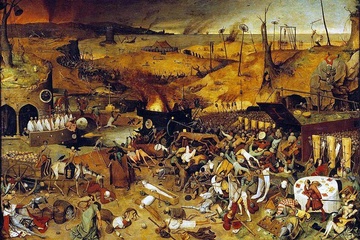“A good leader is decisive.” This appears as a full entry dated June 6, 2009. It’s listed under a section I labeled “Career Research” in my online Google Notebook. This is the specific tab where I’ve been keeping track of all such brilliant kernels of thought that I might want to bring up during a job interview this year. “Decisive”—what a good word. Now I’m employable.
Think of Google Notebook as a web-based version of your traditional Mead Five-Star, except, with this online adaptation, you can organize, order, and re-order every entry you make. You can easily paste in text from Web sites and articles, and most importantly, your notebooks are always just a few clicks away online—and you’ll never lose them.
If you’ve never used Google Notebook before, you’re out of luck unfortunately—development of the service was discreetly terminated in January 2009. As of now, past users can continue to access and update their notebooks, but the tech giant no longer supports new Notebook sign-ups nor actively aims to improve current features. I’m looking to move to other similar services soon, such as Evernote or Zoho Notebook. The motto of the former is “Sign in and start remembering everything.”
And it’s true, what is great about these services is that you feel no qualms about entering the most random thoughts and ideas into your notebook—things you would otherwise simply forget (and even forget you forgot). I have one notebook called “Misheard but Good Lyrics” for those occasional songs I listen to and think: Damn, that lyric would have been so much better if they had used this other word instead. Listen to “A Dustland Fairytale” by The Killers and tell me the phrase “night gown” shouldn’t be replaced with “night cap.” Sorry, it’s just a fact, and now you’ll never listen to this song the same way again.
For me, Google Notebook has become a sort of private Twitter—a repository for all the underdeveloped thoughts and ideas that come into my head during life at Harvard, but which I don’t feel like sharing with Frank209 and Sexygirl116. Don’t worry, Frank hasn’t shared much of his wisdom with me either. His only tweet so far reads: “I am part of the SOLUTION. I use much water based inks.”
I can’t say I’ve always had such a zeal for note taking though. In fact, I’ve never kept a diary or journal—dream or otherwise—and I seek to avoid taking notes in class whenever possible. When I first started using Google Notebook, I was only trying to keep track of the few memorable quotes that I would inevitably stumble upon while web browsing. An entry from July 2006 in my “Famous Quotes” notebook reads: “Every journalist has a novel in him, which is an excellent place for it. —Russel Lynes.”
Clearly, I have not since taken Mr. Lynes’s wisdom to heart, hence my notebook titled “Book Ideas.” In fact, since my humble beginnings collecting quotes, I’ve created dozens of other notebooks. There’s an idea for a Bud Light commercial in there somewhere and an extremely complicated prank idea I once devised to trick someone into thinking that they’ve traveled back in time.
I have an idea for a T-shirt company, a type of amusement park I’d like to see someone build, and five different types of online dating Web sites that I think could be profitable. Investing strategies, thesis topics, pick-up lines—you name it, I’ve probably written a note about it. One note I particularly like questions whether a hotel brand that would cater to America’s overweight population could succeed. Thoughts?
I’ll be the first to admit, some of my entries seem to border on the ridiculous. Apparently in 2007, I thought it would be wise to have a notebook called “Sports Lessons” in which I summarize the tips I picked up when taking a golf or tennis lesson. The one and only entry is from July 20 and reads: “Shot—keep back foot planted; stay balanced; don’t reach, let the ball come to your strike-zone; if you miss, miss long.” Fantastic. Good thing I have that written down.
Who knows? Maybe this won’t work out the way I’ve planned. Maybe I won’t end up writing commercials or working in the obesity hospitality sector and these notes will just go to waste. But just maybe I’ll end up writing a book about a guy who makes commercials for this very hotel chain. Who knows which random thought will have been worth jotting down?
An entry under “Original TV Ideas” reads: “If They Fought—A simulation of what would happen if two groups for whatever reason… fought. For example: Actual New England Patriots in the 18th century vs. actual Carolina panthers.” This is now a real show on Spike TV called “Deadliest Warrior”—I had nothing to do with its creation, of course, but hey, at least its existence means my ideas can’t be all that bad. Many of them are useless for sure, but you only need one great thought to make all of this collecting worthwhile.
I don’t think there is anything particularly unique about me that makes online notebooks compelling. I’m under the impression that Harvard students come up with world-changing ideas everyday. Maybe you’re walking to Sever, or just about to fall asleep at night. How many times have you forgotten something great because you didn’t want to get out a pen and paper—and then, what would have been the point, you would probably have lost the note anyway. Don’t let this happen again; get in the 21st century habit of remembering everything.
—James M. Wilsterman ’10 is an Economics Concentrator in Lowell House. He can’t even remember the last time he forgot something.



